Review: The Hill Guitar Company Companion Is an Exemplary Parlor-Sized Crossover Nylon-String Guitar
Kenny Hill knows guitars. Hill is a renowned luthier, a composer of fine contemporary music, and an accomplished performer as well. The nylon-string instruments made in limited numbers in his Ben Lomond, California, workshop are in the elite stratosphere, pricey and exquisite. Incorporating modern features like double tops, elevated fretboards, soundports, and True Temperament frets, these guitars are generally bold and articulate, with great note separation, superb dynamic range, spot-on intonation, and fantastic playability.
Hill’s latest model, the Companion, is a short-scale parlor-sized instrument that costs a fraction of the other guitars made in the California shop. The Companion is designed to be a professional-quality travel instrument for a classical guitarist or a crossover guitar for the steel-string player. It can be ordered with a variety of tonewood combinations, from the traditional spruce and rosewood to all-maple, for a personalized instrument.
Not long ago, Hill visited my home in the Los Angeles area to show me a couple of freshly made Companions, one with a spruce soundboard and rosewood back and sides and the other built entirely of rosewood. Both instruments sounded great—notably present and well-balanced. The spruce-topped version had a crisp tone, while its all-rosewood counterpart sounded darker and mysterious. Hill left the latter with me, and I truly enjoyed getting to know it.
Simple Design and Excellent Execution
Fit and finish are exemplary on the handsomely austere Companion. There’s a Shaker-like simplicity to the design, from the thin concentric lines of the rosette to the stark monolith of a maple tie block on the rosewood bridge. Unless you count the matching rosewood heel cap and headstock veneer, the guitar’s only ornamentation is a narrow band of maple separating the two back plates. All of these aspects really highlight the beauty of the woods, as does the perfectly applied satin lacquer finish.
ADVERTISEMENT
Time slips away when you play a guitar as well-built and captivating as the Hill Companion.
The guitar’s Golden Age tuners are not just attractive with their engraved brass plates and pearloid knobs, they work smoothly and hold the pitch very well. And although the Companion doesn’t sport True Temperament frets as on the highest-end Hill models, the intonation is spot-on; chords both simple and complex ring together beautifully up and down the neck.
The Companion feels very inviting to hold and play. Rosewood is thought of as being a heavy tonewood, but the guitar is light and well-balanced. Substantial but not chunky, the neck has a very comfortable D-shaped profile with plenty of shoulder. With a 620mm (24.41-inch) scale length fretboard and 48mm (1.89-inch) nut width, it’s also great for a guitarist who has smaller hands, and the short scale makes playing ordinarily difficult finger stretches a breeze. While the action on the review model is a little high for my taste, there’s plenty of room to lower the saddle, and, unlike most nylon-string guitars, the Companion has an adjustable truss rod for adjusting the neck relief.
A Captivating Voice
Overall, the Companion has a pleasing, round tone with ample bass and plump trebles. There’s a three-dimensional quality to the notes; the sound surrounds you and pulls you in—an effect likely enhanced by the soundports on the upper bouts.
I tried a range of fingerstyle repertoire on the Companion, including some of my own pieces, which are in the contemporary classical/jazz vein; my woodshed tune of the month, the jazz standard “Blue Bossa”; a bunch of exercises from Mauro Giuliani’s 120 Studies for Right Hand Development; and an arrangement of the traditional song “Shenandoah” that I’ve been working on. The guitar sounded equally beautiful in all these different contexts, with great clarity and note separation.
When I played some single-note lines with a flatpick, the Companion responded equally well. With this technique, the guitar’s throaty midrange becomes apparent. I even felt a bit of a David Rawlings/small archtop vibe when I dug in with the pick, showing that the guitar has a versatile voice.
ADVERTISEMENT
While I had good fun playing the Companion around the house—its round, mysterious quality was a nice match for my late-night modal meanderings—it would also be a great guitar to have in the studio. I could definitely see the instrument’s bell-like chords and round lead lines making for a great solo recording, or sitting nicely among other tracks.
The Bottom Line
Time slips away when you play a guitar as well-built and captivating as the Hill Companion. With its compact body, it’s equally suited for the road and the couch. The guitar’s short scale length and relatively narrow nut would feel like home to a steel-string guitarist, and the instrument would be a great option for discriminating players looking to add the sophisticated sound of a nylon-string to their arsenals. A fine companion indeed!
Specs
BODY Parlor size 12-fret; solid rosewood top, back, and sides; fan bracing; twin soundports; rosewood bridge with maple tie block and compensated saddle; satin lacquer finish
NECK 620mm-scale Spanish cedar; slotted headstock; ebony fretboard; 19 frets; 48mm compensated nut; Golden Age tuners
OTHER D’Addario EJ46 Pro-Arte strings; Córdoba softshell case
MADE IN USA
PRICE $2,500 direct
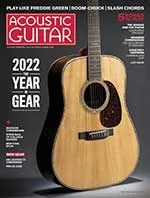
This article originally appeared in the January/February 2023 issue of Acoustic Guitar magazine.


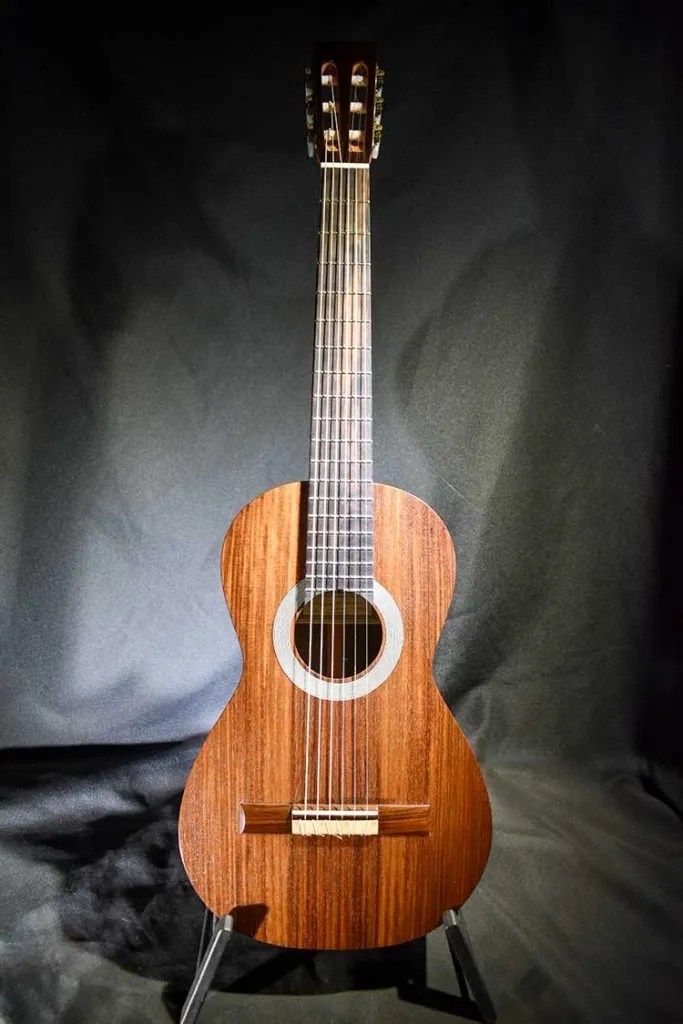
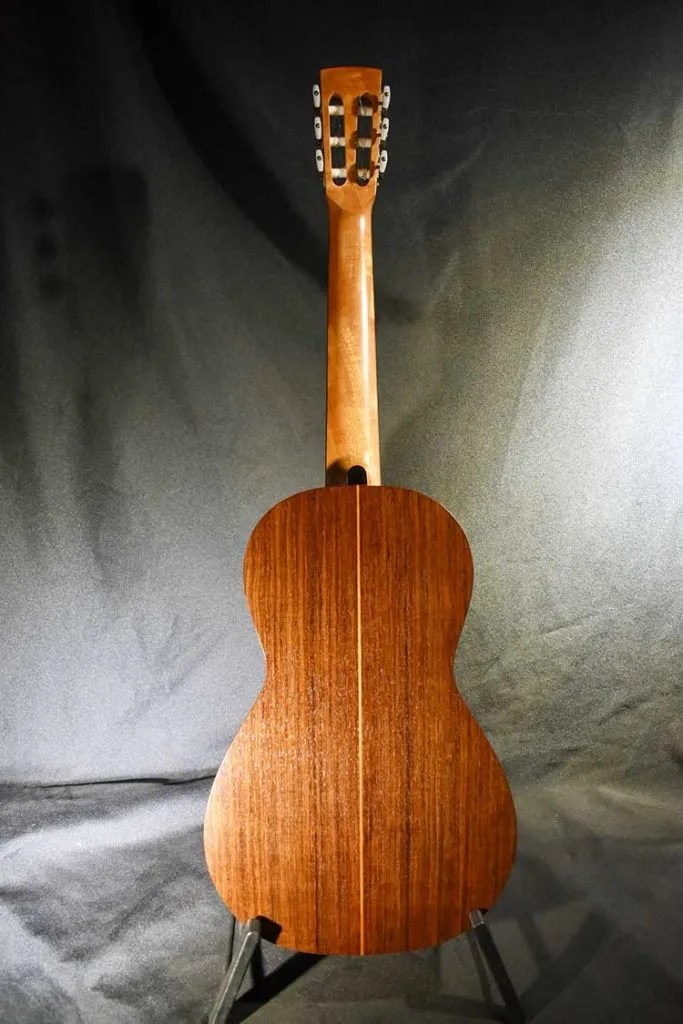
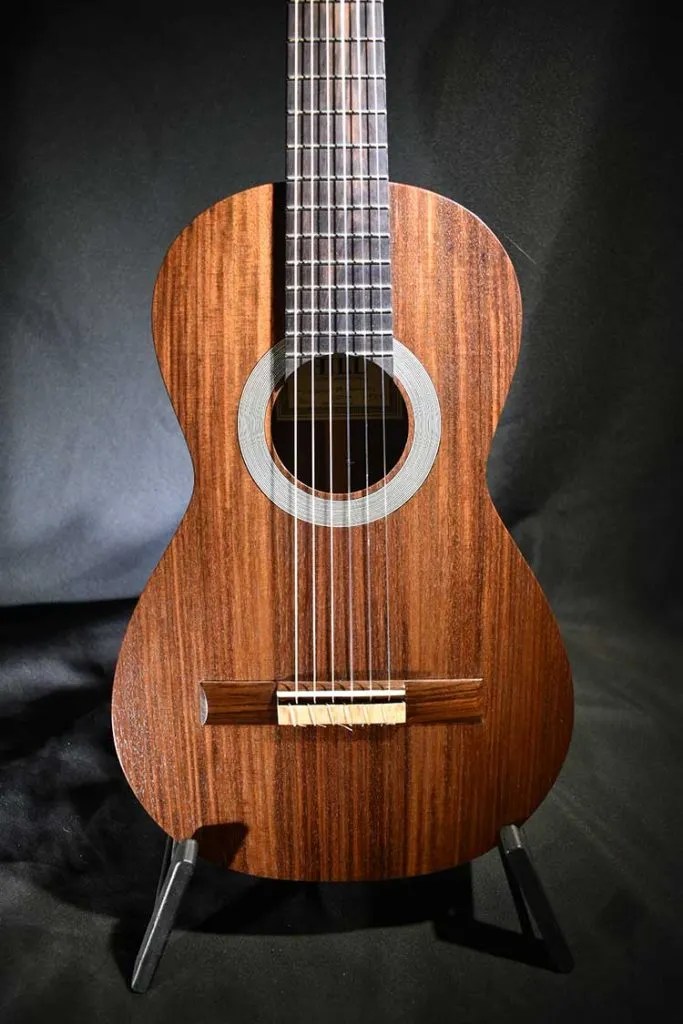
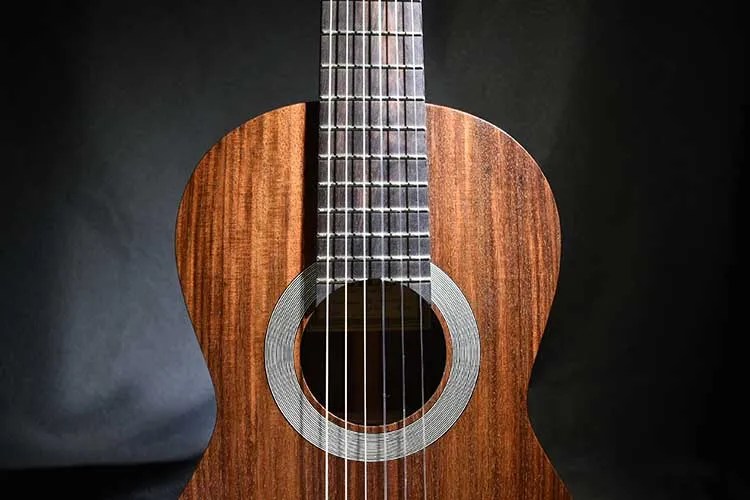
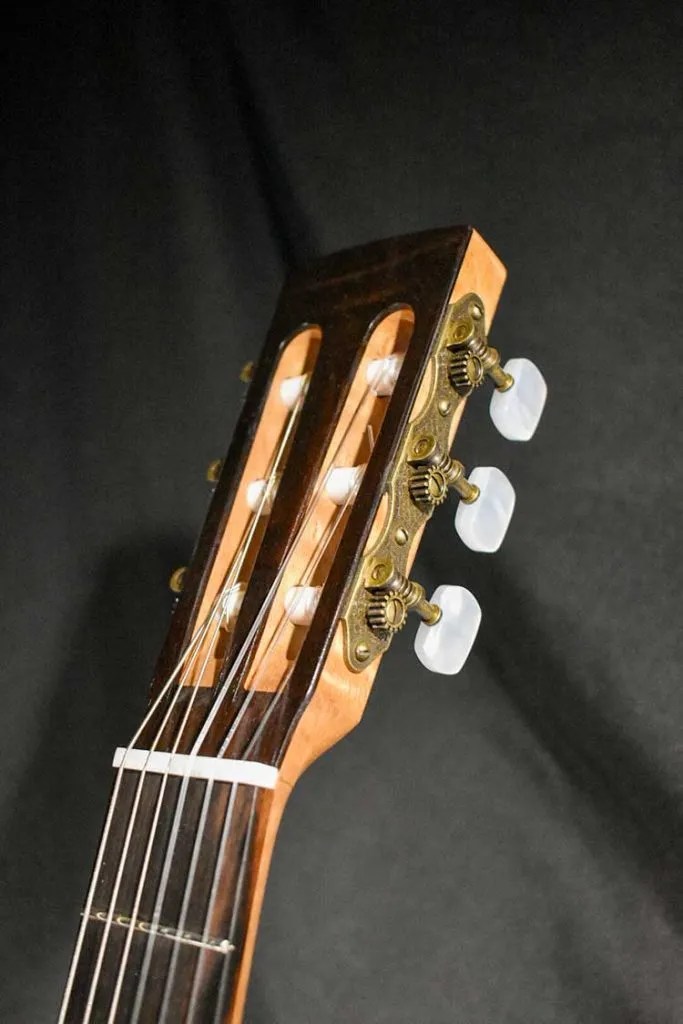
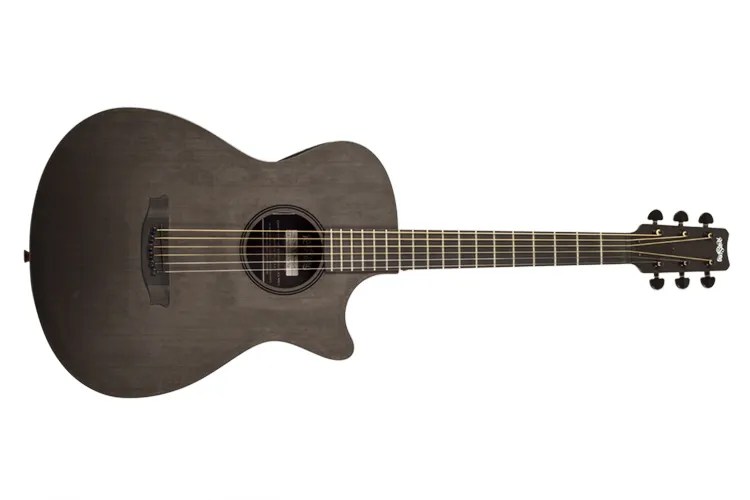
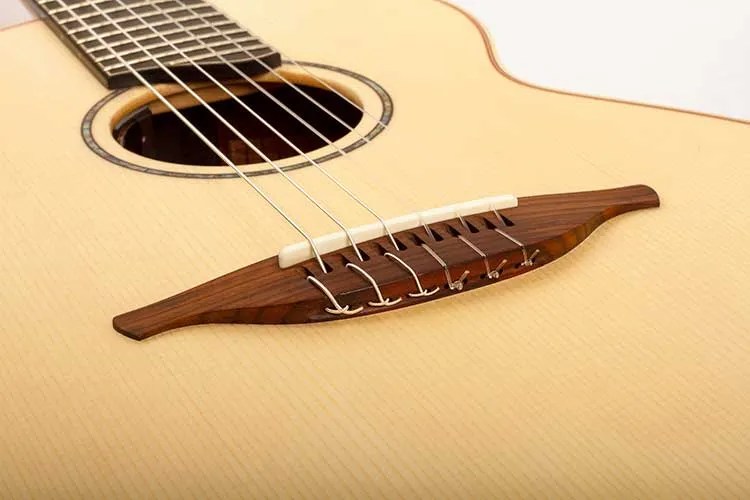
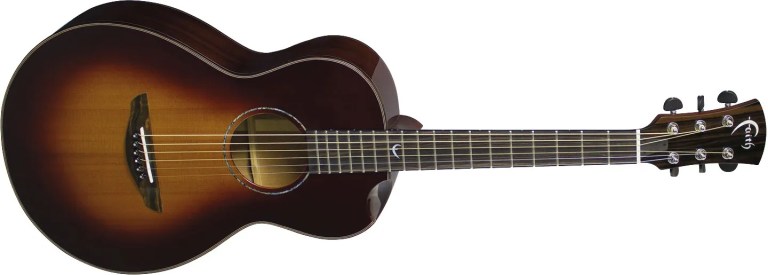
I am interested in the Companion.
I would like to discuss the wood type options. I saw a comment that mentioned a spruce top and rose wood. Not that I have designs on one or the other, I would just like to discuss what cedar would sound like with this guitar or the other woods.
And are there any other demos available.
Thank you.
Gary